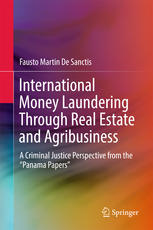

Most ebook files are in PDF format, so you can easily read them using various software such as Foxit Reader or directly on the Google Chrome browser.
Some ebook files are released by publishers in other formats such as .awz, .mobi, .epub, .fb2, etc. You may need to install specific software to read these formats on mobile/PC, such as Calibre.
Please read the tutorial at this link: https://ebookbell.com/faq
We offer FREE conversion to the popular formats you request; however, this may take some time. Therefore, right after payment, please email us, and we will try to provide the service as quickly as possible.
For some exceptional file formats or broken links (if any), please refrain from opening any disputes. Instead, email us first, and we will try to assist within a maximum of 6 hours.
EbookBell Team

0.0
0 reviewsThis book examines two types of transnational money laundering: the use of offshores and wire transfers to “invest” in real estate; and agribusiness, a nebulous activity that is difficult to regulate. The author also examines current international mechanisms to combat money-laundering; whether these efforts have been successful or unsuccessful; and whether multilateral instruments are an effective tool in the war against international organized crime.
As national borders have opened and trade barriers have fallen, transnational crime has grown at unprecedented levels. The current situation, better revealed by the so-called “Panama Papers,” is a result of a lack of local cooperation in the investigations, prosecution, and/or extradition of criminals. Governments profit from ill-gotten wealth hosting international criminal enterprises in their own territories, thus providing a fertile ground for illicit practices, closing their eyes to the nexus among false or inappropriate identification, fraudulent records, corruption, and money laundering. If these types of transnational money-laundering are allowed to remain as they are currently treated, the shift in the financial paradigm, from centralized and regulated to decentralized and “unregulated,” would allow for the continuation of some of the most dangerous criminal activity. In this timely book, the author presents arguments that by “following the money,” capital movements involved in transnational money laundering through real estate and agribusiness can be examined, revealed, and understood.